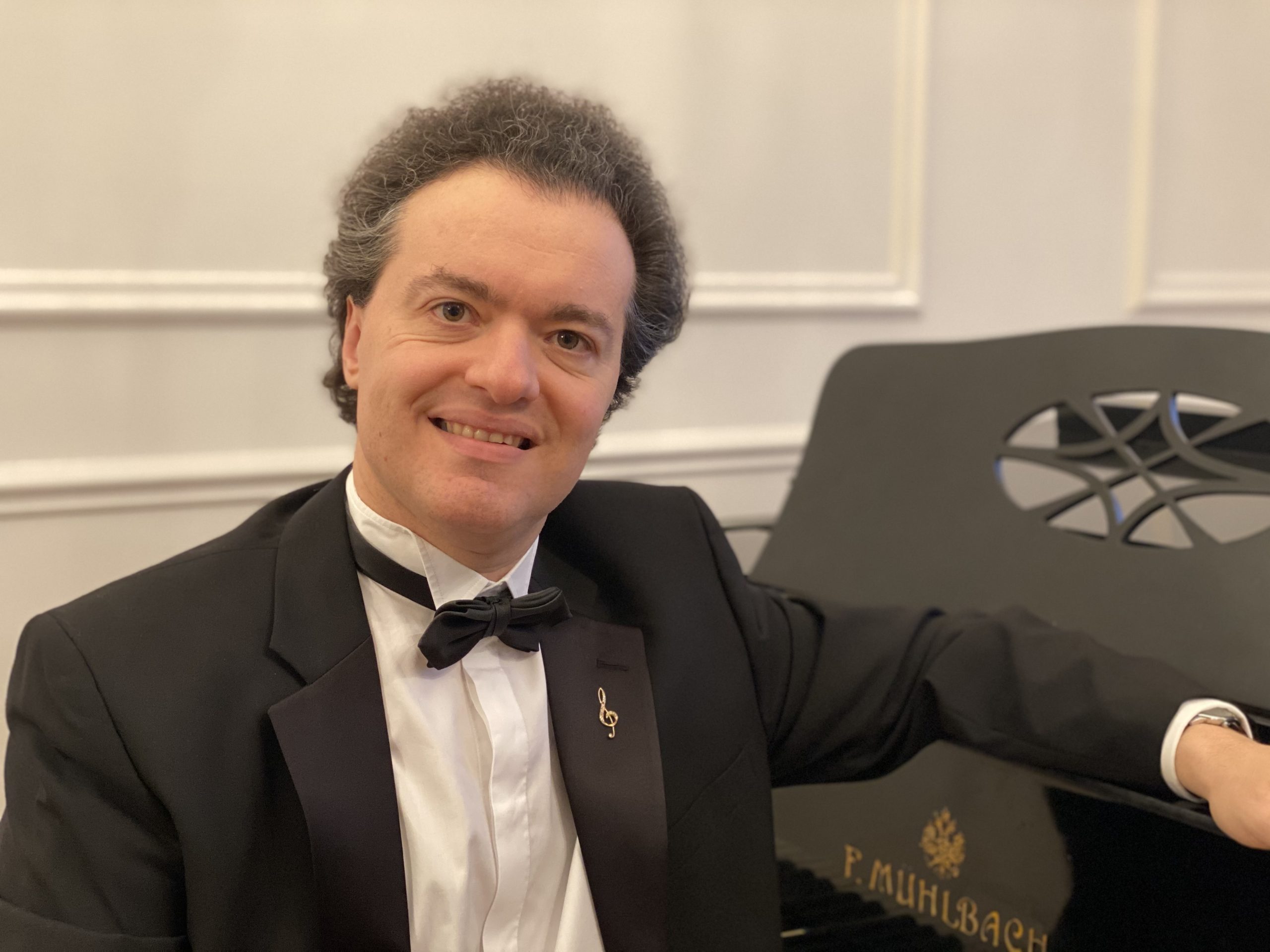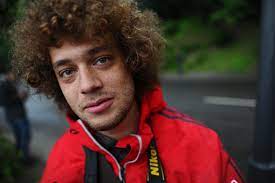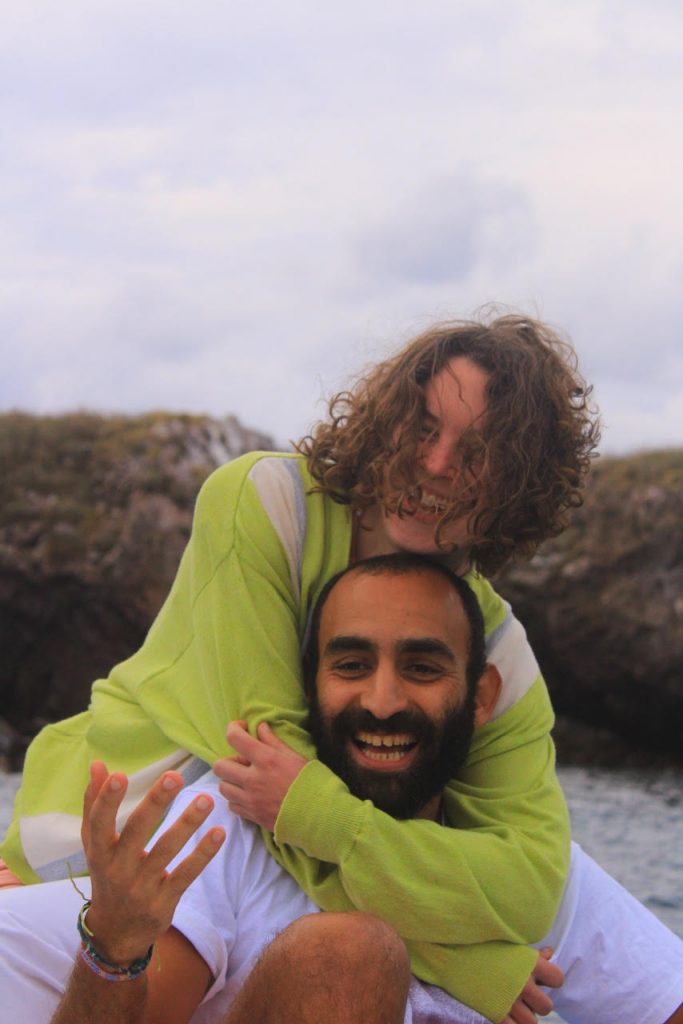Index relies entirely on the support of donors and readers to do its work.
Help us keep amplifying censored voices today.
Our CEO Ruth Anderson reflects on the events of the past 12 months, yet another year of challenges to human rights around the world

Evgeny Kissin, one of the most famous pianists in Russia, has described Vladimir Putin as a “bloodthirsty criminal”. Photo: Wikimedia Commons/Gkobe
The world in which Index on Censorship was born seems to be reemerging. In August 1968, after the blossoming of freedoms in Czechoslovakia known collectively as the Prague Spring, the Soviet Union invaded the country. Protesters were brutally crushed. Despite the violence and the stranglehold on freedoms back in Russia, eight fearless dissidents took to Red Square in Moscow to demonstrate.
One of the bold demonstrators was Pavel Litvinov, a young physicist at the time. In that same year Litvinov had co-authored a pamphlet entitled Appeal to World Public Opinion, asking those in the west to fight against the suppression of dissent in the Soviet Union. The poet Stephen Spender responded, suggesting the creation of an international committee whose goal would be to support the democratic movement in the USSR. This committee would engage writers, scholars, artists and public personalities from countries like the UK, the USA and also Latin American nations.
This is how Index on Censorship was brought into life, responding to the call of these dissidents and giving them a voice.
More than 50 years later, the USSR doesn’t exist anymore, but Russia has shocked the world with the invasion and consequential brutal war in Ukraine. What remains is the courage and bravery of people and dissidents defying the regime of Vladimir Putin. Below are just six of the noticeable Russian citizens who’ve spoken up against Putin and the war in Ukraine.

Russian artist Victoria Marchenkova, who’s been using Facebook to encourage people in Ukraine to flee to Canada. Photo: Wikimedia Commons/Na4ya
“STOP THE WAR” – that’s what the Moscow-born artist Victoria Marchenkova wrote on her website. Marchenkova works with different styles, but with one thing in mind: approaching the economic situation of the world, international traditions and its heritage. After the war in Ukraine began, she announced on her website that her solo exhibition at a Moscow gallery had been delayed until the end of the Russian invasion. Her exact words? “Please let’s save the world all together. STOP THE WAR”. Very active on Facebook, she has also encouraged people in Ukraine to flee to Canada.[/vc_column_text][vc_custom_heading text=”2. Evgeny Kissin – pianist”][vc_column_text]The pianist Evgeny Kissin has been an important name from Russia who declared himself against the war. In a solemn video titled Note of Protest, Kissin called Russia’s invasion of Ukraine a crime that has no excuse and also described Vladimir Putin as a bloodthirsty criminal. “Sadly, far from all who initiate criminal wars are punished, but none escape the judgment of history,” Kissin said. The video was published on his Instagram account and was viewed around 100,000 times.[/vc_column_text][vc_custom_heading text=”3. Mikhail Gelfand – biologist”][vc_column_text]Renowned Russian biologist Mikhail Gelfand is considered one of the most important people in the area of molecular evolution, comparative genomics and systems biology. He was the main person behind a letter signed by approximately 7,000 Russian scientists against the war in Ukraine. It’s a bold move. The Russian president has said that every Russian citizen who questions his invasion of Ukraine will be treated as a traitor and that a necessary self-purification of society will help to strengthen the country.[/vc_column_text][vc_custom_heading text=”4. Marina Ovsyannikova – journalist”][vc_column_text]
Daughter to a Russian mother and an Ukrainian father, Marina Ovsyannikova is a Russian journalist who had a job on the Channel One Russia TV channel. She gained prominence after she broke into a state-controlled Russian TV news broadcast and protested against the war. As a result, she was arrested and fined, but was released afterwards. Today, while she waits trial for interrupting the news programme, she is very active on her Instagram account. If convicted, she could be sentenced to 15 years in prison. In a recent post on Instagram, she wrote: “I wanted to demonstrate to the world that not all Russian people believe the same and I believe that many people… are against the war.”

This video grab shows Russian Channel One editor Marina Ovsyannikova holding a poster reading ” Stop the war. Don’t believe the propaganda. Here they are lying to you” during on-air TV studio by news anchor Yekaterina Andreyeva, Russia’s most-watched evening news broadcast. Photo: Zuma Press/Alamy
[/vc_column_text][vc_custom_heading text=”5. Ilya Varlamov – blogger”][vc_column_text]The Russian Youtuber from Moscow has been speaking openly about the war in Ukraine on his Youtube channel, which is focused on analysing politics in Russia. Often critical in tone he has interviewed people such as Alexei Venediktov, the former editor-in-chief of the now-closed Ekho Moskvy. He has more than 3.3 million subscribers, where he’s been publishing videos almost daily. At the time of print, Varlamov had not been detained for his criticisms. He does have some experience of this though; he was briefly arrested in South Sudan after security found the remote control of a drone in his luggage, accusing him of trying to film military activities with the drone.

Russian Youtuber Ilya Varlamov. Photo: Wikimedia Commons/Mitya Aleshkovskiy
[/vc_column_text][vc_custom_heading text=”6. Youri Doud – blogger”][vc_column_text]Born in East Germany in 1986, Youri Doud sees himself as Russian by identity. He’s worked as a freelance journalist and in 2017 he launched a Youtube channel with the purpose of interviewing Russian celebrities. After Russia began its so called “mission” in Ukraine, Doud shared on his Instagram account a song called 100-year War, written by the group Noize MC, which has achieved millions of likes and reactions. The song discusses what artists should do when it’s not within their power to change a political catastrophe which is developing. The conclusion of the band is short and clear: “We have no other choice than to honestly speak up about what is happening. So that’s what we are doing.
[vc_row][vc_column][vc_column_text]

Kelly and Ennarah in happier times
Two months ago, British documentary filmmaker Jess Kelly was making plans for a happy future. She had just got married and she and her Egyptian husband Karim Ennarah were planning on a life together in London.
Today, the future could hardly be more uncertain. Ennarah is in an Egyptian jail facing charges of belonging to a terrorist group and spreading false news, with the threat of a long jail sentence.
Ennarah’s ‘crime’ was to meet in early November with a group of European diplomats, including from the UK and the Netherlands, to discuss human rights issues in the country. Ennarah works as criminal justice unit director for the Egyptian Initiative for Personal Rights. His work focuses on human rights abuses within Egypt’s policing and the criminal justice system.
Speaking to Index, Kelly said, “I was in London on the day of the meeting and we were on the phone. He mentioned he had to get up early and had an important meeting with a couple of diplomats.
“It was typical of him to underplay the importance of these things and also to underplay his role. He joked that he was going to have to wear a suit. I didn’t know then it was going to be such a historic turning point,” said Kelly.
A few days later, Ennarah travelled to the Red Sea town of Dahab for a short break with friends. Kelly planned to join him there.
On the day of his arrival, Ennarah received a phone call to say that his EIPR colleague Mohammad Bashseer had been arrested. He thought about turning around and heading straight back to help but he decided to stay for one night.
Kelly says, “That night he called me, he told me the police had come to his mum’s house and told me to prepare for the worst. He couldn’t couch it in comforting terms.”
Kelly first met Ennarah in 2009.
“I was doing my degree in Arabic and was spending the second year in Cairo. We were introduced by mutual friends. At the time, he was working for the UN in South Sudan and he started working for EIPR in 2011, just after the revolution. We got together in 2015.”
Ennarah was well suited to his new role.
“He found himself very suited to the job of advocacy,” said Kelly. “His sense of right and wrong was strong and he has an encyclopaedic knowledge of human rights. He is also a very good speaker and can talk to anyone.”
EIPR is one of the few remaining human rights organisations in Egypt.
“Over the years, Karim has supported many journalists who come to him for comment,” said Kelly. “EIPR are the ones in the know, they are the only people taking testimonies and conducting proper research into abuses of human rights, whether of minorities or in the criminal justice system.”
Kelly says that the human rights situation in Egypt has deteriorated over the years and the authorities have been locking up political prisoners at an increasing rate.
“I have made films in most countries in the Middle East – Iraq, Lebanon, Kuwait, Saudi Arabia. Egypt is the only place I have never been granted a visa. People see Egypt as a holiday destination where you can drink and people have a good time. It is well known to us in the media that Egypt is the only place that you don’t try and expose things because you will be locked up.”
On 18 November, the couple’s concerns materialised. Ennarah was sitting in a restaurant in the Red Sea town when he was arrested by the authorities.
During a four-hour investigation, security forces confiscated his laptop, phone and personal belongings and ordered his pre-trial detention for 15 days on charges of “joining a terrorist group”, “using a social media account to spread false news” and “spreading false news”. The prosecutor said the charges were based on security investigations showing that Ennarah “agreed with a group inside prisons to spread false rumours that could undermine public peace and public safety.”
Ennarah is not alone – Patrick George Zaki, a human rights activist who had previously worked with EIPR, and the organisation’s executive director Gasser Abed El Razek have also been arrested.
“When Patrick Zaki was detained in February, it was a huge shock for everyone,” said Kelly. “We discovered that they had interrogated him and had asked about Karim by name.”
Despite this worrying development, Ennarah did not flinch.
“Karim is someone who is not going to run away from anything until he is forced to,” said Kelly. “We spoke about how it wasn’t safe for him but he just was never going to give up this role. There are not many people who can take it one, he would say, someone has to keep fighting.”
Kelly has not been able to speak with Ennarah or get him a message since his arrest a week ago but she believes emphatically that he will be strong.
“Karim is very resilient and very pragmatic,“ said Kelly. “He will be confident that he has the best people working on his case get him out. He is very strong-willed but I think it is going to be very hard for him to think about his mum and me. He wouldn’t have wanted me to put my life on hold but I can’t think of anything else.”
Kelly speaks to Ennarah’s mother regularly. “When we talk, she seems pretty strong. She is proud of him. She says to me, ‘He is the person who loves Egypt the most. How could they level these accusations against him?’”
Kelly believes that applying pressure now – before there is a trial or sentencing – offers the best chance of getting him free. Some 90,000 people have already signed a petition started by Kelly to UK foreign secretary Dominic Raab calling for the UK government to demand his release.
Next Monday is Ennarah’s 38th birthday and it will be a difficult day for Kelly and Ennarah’s family.
“Just two months ago when we got married we were dreaming of our future together. Now I don’t even know when I’ll get to see him again,” she said. “I couldn’t wait to have him by my side. Now our life together has been crushed.”
She says the charges against Ennarah are totally unfounded.
“His only crime is to dare to believe that Egyptians deserve the most basic of human rights.”[/vc_column_text][/vc_column][/vc_row][vc_row][vc_column][three_column_post title=”You may also want to read” category_id=”4060″][/vc_column][/vc_row]